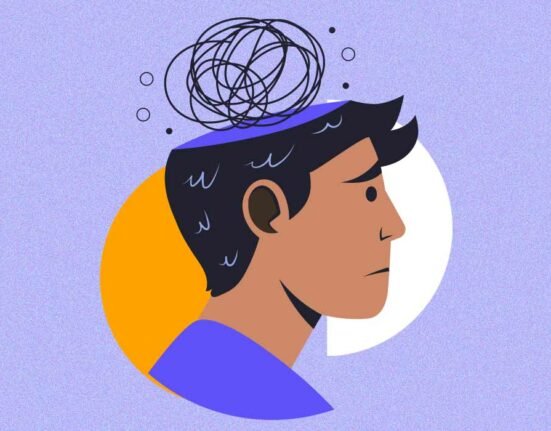Fasting is one of humanity’s oldest and most widespread ritual practices. It is performed in the forms of Navaratri in Hinduism, Ramadan in Islam, and Lent in Christianity. Fasting is more than abstaining from food; rather, it’s a symbol of discipline, sacrifice, community and spiritual renewal. While much of the discussion focuses on its physiological effects, its physiological dimensions are equally profound. What does fasting do to mood, cognition, self-regulation and social connection? This article will explore those dimensions and discuss about benefits and challenges of fasting.
Read More: Do you know the Mental Health Benefits of Fasting?
Fasting: Potent Culture & Psychological Ritual
In many traditions, fasting is a tightly woven ritual embedded in religious, communal, and symbolic meaning. It’s often framed as a form of spiritual discipline or purification and conduct alongside prayer, meditation or communal meals. These shared practices provide a psychological system, structure accountability shared purposes, which helps individuals to sustain the fast mentally as well as physically.
After becoming a part of communal life, it carries emotional and symbolic weight. In cultures where ritual observance is central, willingly forgoing physical comforts can reinforce identity, group belonging and sense of meaning.
Read More: Trance in Meditation and Prayer: A Journey Inward Toward the Self
Psychological Effects: Benefits and Challenges
1. Positive Side Effects
- Fasting enhanced self-control, pride and mastery: A controlled 18-hour fast in healthy women showed not only expected irritability but also increases in feelings of pride, control, and internal reward(sense of mastery) (Michalsen et.al., 2016; Watkins & Srepell, 2021). Such positive affective experiences suggest that, beyond discomfort, fasting can affirm self-efficacy.
- Improvement in well–being measures: In a study of Muslim graduate students during Ramadan, participants reported improvement in overall Psychological well-being, including self-acceptance, autonomy and personal growth. This suggests that ritual fasting, when embedded in a cultural context, may support mental health.
- Emotional mastery through neuroendocrine changes: A comprehensive review of fasting’s effects highlights the strong connection between glucose metabolism, hormonal shifts, and mood regulation. It triggers metabolic transformation(from glucose to ketones), which can influence neurochemical balance and affective regulation.
2. Negative Side Effects
- Irritability, mood swings and fatigue: Even short-term fasts can bring irritability, hunger, discomfort and negative mood states during early phases. In healthy woman fasting for 16 hours reported irritability despite gains in control and pride. A pilot study with volunteers fasting for one week showed that wide individual variability, mood changes, hunger, cold sensitivity, and sleep disturbances differed significantly among participants.
- Limited or no change in psychological well-being: In middle-aged men engaged in an 8-day water-only fast, physiological changes were evident in weight loss, blood pressure reduction, nut psychological measures, but remained relatively stable. The only significant psychological effect was on state anxiety, showing that benefits are not guaranteed.
Read More: Coping Strategies for Dealing with Mood Swings
3. Influence on fasting experience
In a controlled fasting experiment over 22 days, participants with prior fasting experience reported fewer negative effects (fatigue, mood disturbance) than novices. This adaptation over time plays a moderating role.
4. Physiological vs Psychological divergence
A 5-day fasting study with women found that mood, vigour, and reduced tension improved even as inflammation markers rose and basal metabolism dropped, highlighting how psychological outcomes may not always mirror physiological stress.
Cognitive and Neurological Perspective
Fasting induces a metabolic shift from using ketone bodies that may influence brain structure. A recent review on intermittent fasting and neurotrophic effects suggested that fasting could encourage neural plasticity and neural protection through pathways like BDNF(Brain Derived Neurotrophic Factor), mTOR(Mammalian Target Of Rapamycin) and AMPK(Activated Protein Kinase. Such changes may encourage better flexibility, mood stability in some individuals.
Moreover, Qianying et al(2021)study. Fasting under supervision elicited upregulation of brain-derived neurotrophic factor(BDNF) and linked stress resilience, suggesting that fasting might support neuronal health and adaptability. (1) These neurobiological changes offer a plausible mechanism for the psychological effects observed.
Social & Emotional Dimensions
Fasting is rarely a solely personal effort; shared fasts foster empathy, solidarity and relational bonding. For example, during Ramadan communal iftar meals, collective prayers, and mutual encouragement amplify social connection, accountability and emotional support buffers for psychological distress. Additionally, the shared challenge of hunger and self-restraint helps create empathy towards vulnerable populations, deepening emotional awareness and social Insight. This social ripple effect can enhance community cohesion and psychological meaning.
Risks, Vulnerable Populations and Ethical Considerations
While fasting offers potential psychological benefits, it may also pose risks like a history of mental illness; for individuals with mood disorders, eating disorder trauma histories, fasting may exacerbate symptoms or trigger relapse. Extreme or Prolonged Fasting; undertaken without medical oversight, long-term fasting can lead to nutrient deficits, cognitive impairment or emotional dysregulation.
Cultural pressure; in settings where fasting is socially or religiously normative, individuals may feel guilt, coercion or shame if unable to fast. inter-individual variability; the same fasting protocol may yield divergent psychological responses across individuals-what therapeutic for one may be distressing for another. Mental health professionals should approach fasting with cultural sensitivity, respecting its spiritual value while assessing each person’s psychological and medical readiness.
Read More: From Pain to Hunger: The Complex Connection Between Trauma and Eating Disorders
Practical Guidance for Mindful Fasting
- Gradual adaptation; it can begin with shorter fasts, progressively extending duration as psychological tolerance builds.
- Reflective practices like journaling, meditation or silent contemplation during fasting can heighten awareness of internal states.
- Community support should engage with fast-gone participants, share experiences and integrate social accountability.
- Flexibility and observation; monitor mood, energy, sleep and cognitive changes, be ready to break the fast if distress emerges.
- Pre–fast screening; for individuals with psychiatric vulnerabilities, assessment and guidance from mental health professionals are essential.
Conclusion
Fasting rituals traverse the tract of body, mind and spirit. They carry symbolic meaning, social solidarity, self-discipline and often psychological complexity. As research reveals, fasting can bring both challenges and rewards; a period of discomfort enclosed with emotional control, pride and insight. The psychological outcome of fasting is rarely uniform. It depends on cultural context, community support, prior experience and neurobiological factors. When aligned, fasting can enhance resilience, self-awareness and emotional regulation, but without care, it risks emotional strain or instability.
For psychologists, clinicians and practitioners, fasting offers a rich window into self-regulation, ritual psychology and mind-body interplay. Approaching it with humility, cultural respect, and clinical caution can help us unlock its promise to support those who fast not as a test of will but as a vehicle for deeper psychological growth.
References +
Skurvydas, A., et al. (2025). Physiological and psychological responses to five‑day fasting. [Journal name]. https://pubmed.ncbi.nlm.nih.gov/40479627/
Michalsen, A., Schneider, S., Rodenbeck, A., Lüdtke, R., Huether, G., & Dobos, G. J. (2003). Prolonged fasting in patients with chronic pain syndromes leads to late mood enhancement not related to weight loss and fasting‑induced leptin depletion. Nutrition Neuroscience, 6(1), 11–18. https://doi.org/10.1080/1028415021000042811
Effects of fasting during Ramadan month on depression, anxiety and stress and cognition — Amin et al. (India)
This Indian study examined how Ramadan fasting influenced depression, anxiety, stress, and cognitive function in male Muslim students. It found significant decreases in depression and anxiety scores over time and improvements in cognition. [1]
Psychological and Socio‑Religious Effects of Ramadan Fasting Among Healthy Non‑Smoker Adults
A survey in South Asia (Egypt-based but relevant culturally) showed that during Ramadan, psychological distress (general disorders) declined, and socio‑religious activities increased significantly. [2]
This Indian study looked at weight and behavioural changes during Ramadan fasting, highlighting how dietary pattern changes and lifestyle influence physical outcomes among Indian Muslims. [3]
Determinants of body weight changes during Ramadan fasting in India amid COVID‑19: A cross-sectional study













Leave feedback about this